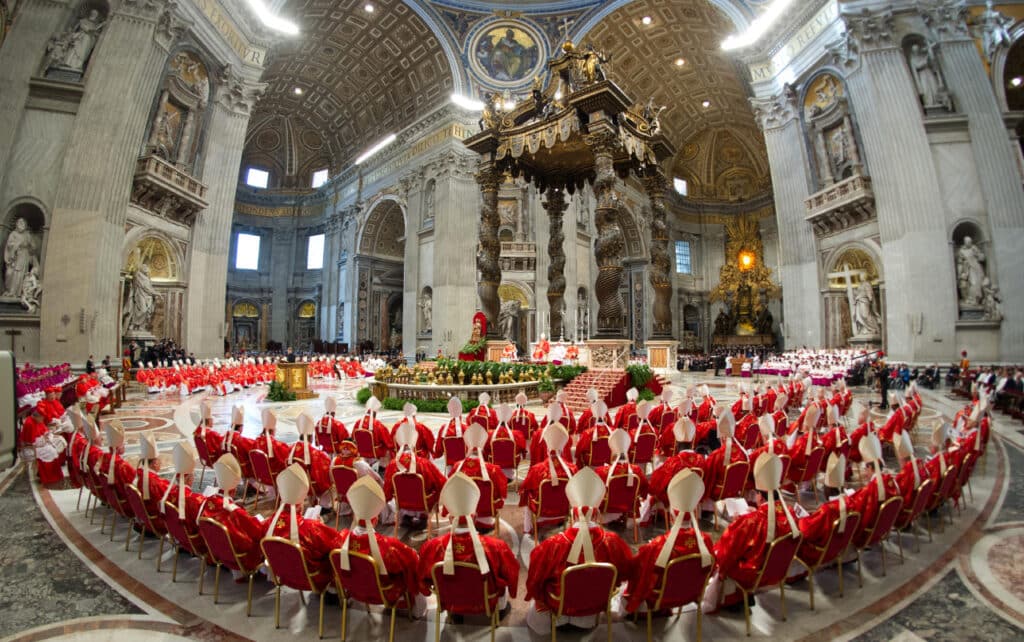Saint Augustine of Hippo was born on November 13, 354, and died on 28 August 28, 430. Saint Augustine was a theologian and philosopher of Berber origin and the bishop of Hippo Regius in Numidia, Roman North Africa. His writings influenced the development of Western philosophy and Christianity, and he is viewed as one of the most important Church Fathers. He was a convert to Catholicism, and his mother, Saint Monica, prayed for him. Saint Augustine’s many books include The City of God, On Christian Doctrine, and Confessions. Do you think there have been any greater thinkers in Western thought?
Saint Augustine Biography

Saint Augustine was born in 354. His mother, Monica, was a devout Christian, a Catholic saint herself; his father, Patricius, was a pagan who converted to Christianity on his deathbed. Saint Augustine’s parents are important. Scholars agree that he and his family were Berbers, an ethnic group indigenous to North Africa, but were heavily Romanized, speaking only Latin at home. This, too, is very important.
When he was 11, Saint Augustine was sent to school. There, he became familiar with Latin literature, as well as pagan beliefs and practices. This was important because he started as a pagan. At the age of 17, through the generosity of his fellow citizen, Romanianus, Saint Augustine went to Carthage to continue his education in rhetoric. Despite the warnings of his mother, as a youth, Augustine lived a hedonistic lifestyle.
His young life had many twists and turns, and he even had a child out of wedlock, but he converted to Catholicism in 386 at the age of 31. As he said, his conversion was prompted by hearing a child’s voice say, “take up and read.” He later wrote an account of his conversion in his Confessions, which has since become a classic of Christian theology and a key text in the history of Western philosophy, and an autobiography.
After converting to Christianity, Saint Augustine turned against his profession as a rhetoric professor to devote more time to preaching. In 391, Augustine was ordained a priest in Hippo Regius, in Algeria. He became famous for his preaching style. In 395, he was made coadjutor Bishop of Hippo and became a full Bishop right away. He remained in that position until his death. As he wrote in the City of God, the Visigoths sacked Rome in 410.
A lot of Augustine’s later life was recorded by his friend Possidius, bishop of Calama. During this latter part of Augustine’s life, he helped lead a large community of Christians against a variety of political and religious factors that had a major influence on his thought and writings. Possidius admired Saint Augustine as a man of powerful intellect who was a great orator who took every opportunity to defend Christianity against its detractors. Possidius also described Augustine’s traits in detail. Augustine ate sparingly, worked tirelessly, despised gossip, shunned the temptations of the flesh, and exercised prudence.
Spending his final days in prayer and repentance, Augustine requested the Psalms of David be hung on his walls so he could read them upon which led him to “[weep] freely and constantly” according to Possidius’ biography. He directed that the library of the church in Hippo be preserved. He died August 28, 430. And, an irony, shortly after his death, the Vandals lifted the siege of Hippo, but they returned soon after and burned the city. They destroyed all but Augustine’s cathedral and library, which they left untouched. Augustine was canonized by popular acclaim and later recognized as a Doctor of the Church in 1298 by Pope Boniface VIII.
Conclusion
Saint Augustine was one of the great thinkers and writers in Western Civilization. His books, particularly City of God and Confessions, are widely read and are a staple of graduate studies everywhere. His life, though long ago, is worthy of study by everyone, even non-catholics. After all, he was a pagan.








